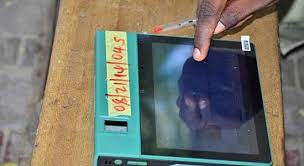
The Lagos State Government has announced that construction of the long-anticipated 68-kilometre Green Line Rail project stretching from Marina to the Lekki Free Trade Zone will begin before the end of 2025.
Commissioner for Transportation, Oluwaseun Osiyemi, made the announcement on Monday during the 2025 ministerial press briefing held at Alausa, Ikeja.
He noted that the ambitious infrastructure project is a major step in the state’s strategic transportation master plan to reduce congestion and boost connectivity across Lagos.
According to Osiyemi, the project will inevitably result in some traffic disruptions along the Marina-Lekki corridor during construction.
He appealed to residents and commuters for patience and cooperation, emphasizing that the long-term benefits of the Green Line would far outweigh the temporary inconveniences.
“This is a transformative step in our multimodal transportation vision,” Osiyemi said. “We urge Lagosians to support this development as it progresses. We are building for the future.”
Blue Line Expansion and Rail Upgrades
Highlighting recent successes, Osiyemi revealed that over 2 million passengers have been transported on the first phase of the Blue Line Rail since its launch. To boost service delivery, three additional rolling stock units are set to arrive by May 2025.
He also confirmed that Phase II of the Blue Line, which extends from Mile 2 to Okokomaiko, will be completed by December 2025, marking another milestone in Lagos’ rail expansion agenda.
Water Transport Growth & Safety Certification
Turning attention to water transport, the Commissioner disclosed that Lagos Ferry Services (LAGFERRY) moved 280,282 passengers between May 2024 and May 2025. Daily ridership has grown from an average of 1,200 in 2024 to 1,500 currently, reflecting increasing confidence in Lagos’ water transport system.
In a significant endorsement of safety and quality, the Lagos State Waterways Authority (LASWA) has earned the ISO 9001:2015 Certification, recognizing the agency’s commitment to international standards in management and passenger safety.
Road Infrastructure and Sustainable Mobility
Osiyemi further disclosed the successful upgrade of 49 traffic junctions, with six more currently undergoing improvements, to enhance urban traffic flow.
As part of Lagos’ push towards cleaner, more sustainable transport, 50 electric buses have been deployed along the Lagos-Badagry Expressway corridor, aligning with the state’s climate goals and commitment to eco-friendly mobility.
Inclusive Transportation and Safety Initiatives
Reaffirming the state’s commitment to inclusive transportation, Osiyemi announced the introduction of specialized license plates for persons living with disabilities aimed at improving visibility, data collection, and targeted services for this demographic.
He also clarified the recent rollout of speed limit policies, noting that they are not revenue-generating measures but are rooted in public safety and the need for real-time traffic data to guide future policy decisions.
“Everything we are doing — from rail to road to waterways — is centered around creating a safer, more inclusive and efficient Lagos,” the Commissioner said.
As Lagos accelerates its transportation revolution, the launch of the Green Line Rail stands out as a landmark project poised to redefine urban mobility in one of Africa’s fastest-growing cities.





